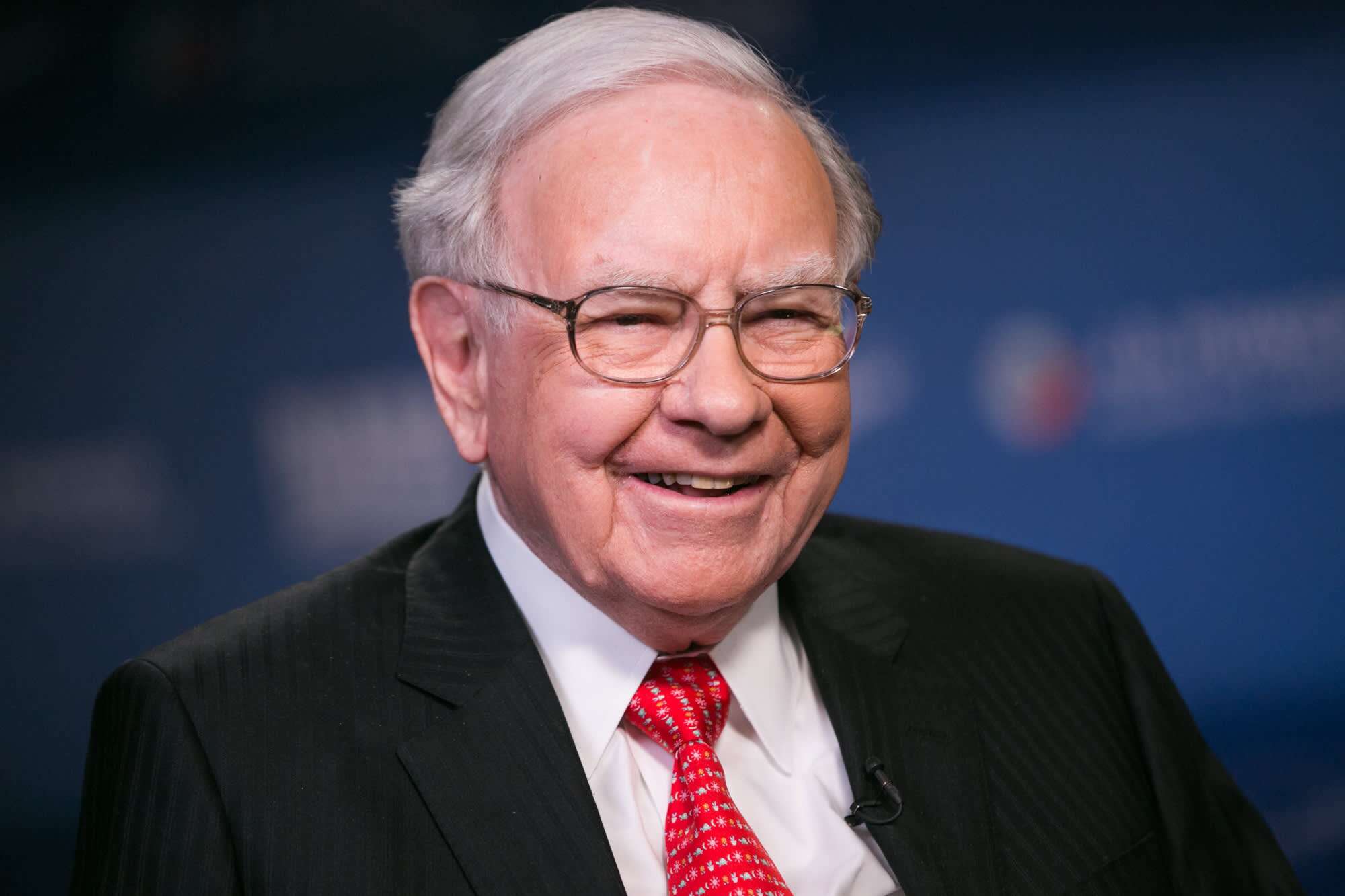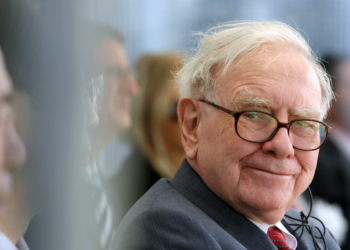Three things we learned from Berkshire Hathaway’s (Warren Buffet’s) 2020 letter to shareholders.
Warren Buffet (Sage of Omaha) recently released his annual letter to Berkshire Hathaway’s shareholders providing a recap of 2020 performance, as well as, giving his general perspective of his company’s journey.
Investors all around the globe fall over themselves to pay attention to what Mr. Buffet says, as well as how his portfolio of companies are performing. Just to learn as much as possible from one of the world’s most successful investors to date.
We at Nairametrics are no different and in this article, we will share some key business takeaways from the 2020 letter.
READ: Young Investors can learn these tips from Warren Buffet
1. Compounding still makes you rich
Just in case some investors momentarily forget about the power of compounding and consistency in investments, the very first page of Mr. Buffet’s letter serves up a timely reminder.
Specifically, since 1965 to 2020, the market value of Berkshire Hathaway’s stock has grown at a compounded rate of 20%. This is remarkable given that very few companies last that long (55 years) let alone provide such returns in US dollars over such a period of time. Even the S&P 500 with dividends included compounded at 10% (which is no small feat in of itself).
This lesson here is that for Retail investors, SMEs, startups, the power of compounding doesn’t need to be continually reminded, it needs to be a primary focus as you seek to deploy capital.
READ: Analysts pick Nigerian stocks Warren Buffett may likely buy
For context, in 1965 our dear country Nigeria had approximately $240million in external reserves.
- If only 1% (i.e. $2.4million) had been invested in the S&P500 index and kept in a fund, the value of that fund today will be $56.3billion.
- Alternatively, if only 0.05% ($1.2million) had been invested in Berkshire Hathaway stock and kept in a fund, the value of that fund today will be worth $67.45billion.
You can learn more about the power of compounding and here also.
2. Always focus on your CORE objectives and Key results
In 2020, Berkshire Hathaway earned USD$45billion of which $21.9b was operating income, $4.9b was unrealized gain, $26.7b was unrealized gain partially offset by $11b loss write-down.
Despite the huge unrealized gain of $26.7b, Mr. Buffet in his typical style was dismissive of unrealized gains but rather was quick to point out that his core objectives of growing operating income and acquiring good companies were not met in 2020!!!.
- “Operating earnings are what count most, even during periods when they are not the largest item in our GAAP total. Our focus at Berkshire is both to increase this segment of our income and to acquire large and favorably-situated businesses. Last year, however, we met neither goal: Berkshire made no sizable acquisitions and operating earnings fell 9%. We did, though, increase Berkshire’s per-share intrinsic value by both retaining earnings and repurchasing about 5% of our shares.”
READ: Why Warren Buffett’s company is buying shares of a gold mining company
Furthermore, Mr. Buffet points out that Berkshire Hathaway’s earnings do NOT factor any portion of the operating earnings of companies which they have stakes in, such that only the dividends due to Berkshire are included in the results.
In other words, he is keen to avoid clouding actual performance of his CORE investment vehicle by avoiding accounting gimmicks which gross-up earnings.
For Nigerian startups, SMEs, retail investors, the lesson here is that a laser-focused approach to tracking CORE business earnings helps provide business owners with clarity about actual business performance. This persistent clarity keeps owners grounded on what are the key areas of focus for improved business performance whilst avoiding reporting superficial income.
READ: What Warren Buffet will do if he traded Nigerian stocks
3. Avoid business complexities AND always choose the most profitable business path which offers the least resistance.
We previously mentioned, Mr. Buffet’s preference to tracking income from CORE businesses. In his letter to shareholders, he goes further to discuss his apathy to the traditional Conglomerate.
Specifically, most businesses that are acquired are seldom leaders in their sector and often are underperforming hence the need to be acquired. Consequently “Conglomerates” who focus on fully acquiring other businesses will likely end up with a portfolio of “Sub-optimal” businesses.
Turning around the fortunes of these “acquired’ businesses will require management time and effort whilst distracting from CORE operations and creating business complexities.
Mr. Buffet notes that going forward Berkshire Hathaway’s approach will seek to avoid this option of undue business complexity and focus on path of least resistance to profitability. This will be achieved by continuing to find very good businesses and taking a stake in these well run businesses.
- “It took me a while to wise up. But Charlie – and also my 20-year struggle with the textile operation I inherited at Berkshire – finally convinced me that owning a non-controlling portion of a wonderful business is more profitable, more enjoyable and far less work than struggling with 100% of a marginal enterprise.
- “For those reasons, our conglomerate will remain a collection of controlled and non-controlled businesses. Charlie and I will simply deploy your capital into whatever we believe makes the most sense, based on a company’s durable competitive strengths, the capabilities and character of its management, and price.
- “If that strategy requires little or no effort on our part, so much the better. In contrast to the scoring system utilized in diving competitions, you are awarded no points in business endeavors for “degree of difficulty.” Furthermore, as Ronald Reagan cautioned: “It’s said that hard work never killed anyone, but I say why take the chance?”
The lesson here for Nigerian startups, SMEs, retail investors is that rather than always wanting to go alone into new ventures, sometimes you need to seek competent partners to collaborate and execute ventures with. (i.e., successful business isn’t always about who struggled the most).
Finally, (Yeah, I know I said three things, but this is also an important takeaway), one additional point is that consistency pays. We previously stated that Berkshire Hathaway stock has returned 2,810,526% between 1965 to 2020. One way that Mr. Buffet has accomplished this is by being very consistent in his portfolio. Consistency can be seen in the duration of holdings, as well as the general mix of the sectors of interest.
With regards to duration, the three most valuable assets in his portfolio have been held for at least 15years plus.
| Holding | Duration | Sector |
| GEICO | 1951 to date | Financial Services – Insurance |
| BHE (Berkshire Hathaway Energy) | 1999 to date | Utilities – Energy |
| BNSF (Burlington Northern Santa Fe, LLC) | 2006 to date | Utilities – Freight/Transport |
Even if you then look at the top 15 investments in Berkshire’s portfolio, you notice it is comprised largely of Financial Services, Utilities stocks and Large Tech firms.
The lesson here for Nigerian startups, SMEs, retail investors is that if you find something that you are good at, keep doing it and producing consistent results, stay within your area of competence and aim to maximize value.






















Thank you for bringing His report in a digest-able form.
In his letter, he wrote, $4.9 billion of realized capital gains. Please correct your mistake. Many thanks
This year Buffett summarized his ethos by saying:
“Productive assets such as farms, real estate, and yes, business ownership, produce wealth– lots of it. Most owners of such properties will be rewarded.”